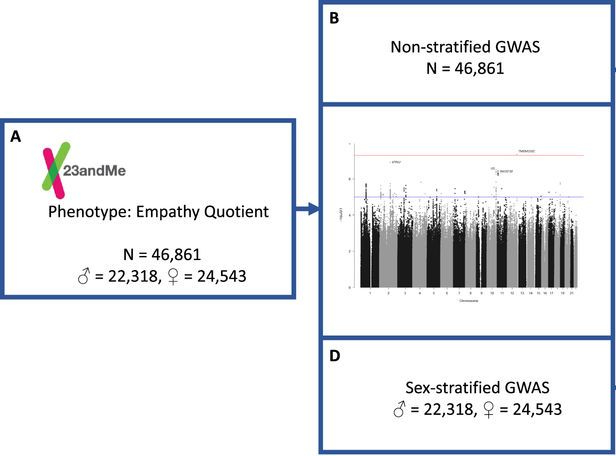As a homage to Mother’s Day just yesterday, I would say that I don’t know what I would do without my Mum (Awh). She is the most empathetic person that I know; she recognises my emotions and knows exactly how to respond if I am ranting/crying/feeling sorry for myself. Whenever I am comforting someone, I find myself thinking ‘what would my Mum do?’ in order to make them feel better, which suggests that being empathetic is something that you can learn from experience and referred to as a behavioural trait.
But what if empathy was also a heritable trait? By looking at 46,000 people, scientists have suggested that, surprisingly, our genetics plays a role in how empathetic we are! The study, which was published in Translational Psychiatry today, also found that women in general are more empathetic than men, which wasn’t as surprising…
The method in which these scientists were able to come to this conclusion was that they gave the participants a questionnaire that measured their ‘Empathy Quotient’ (EQ). Additionally, their saliva was extracted from the participants and the DNA was sequenced to obtain their genome sequence (all of the DNA in the cell).
With all these genome sequences, they then compared them in a Genome-Wide Association Study (GWAS). A GWAS is used to compare the genomes of individuals and see whether there is any significance in genes that they have in common. It may be that a particular Single Nucleotide Polymorphism (SNP), which is a DNA base pair that is found to be present as either one base or another, is common in all people who are more empathetic. They then used statistics to test the significance of this SNP being present and whether it correlates with being empathetic. The diagram below shows what the GWAS results looked like:

After investigating the genomes of 46,861 participants, there were 11 loci (the positions where SNPs occur) which were suggestive of having an association, but after multiple testing they turned out not to be significant. In an additional analysis, they found the most significant SNP in the gene TMEM132C. This gene encodes a transmembrane protein, and some are known to transport substances in and out of the cell. Looking at the function of this protein as well as the gene sequence in more depth may help scientists determine what exactly it is about this SNP that causes participants to be more empathetic.
The study also looked at the difference in empathy between men and women, because who doesn’t love a Battle of the Sexes? They found that women scored a higher average of 50 out of 80 on the EQ, but men scored 41. A result like this could possibly stem from the difference in upbringing within society; girls usually play with dolls whereas boys are more likely to play with trucks and building bricks. Studies have proven that this can influence the contrasting skill sets between males and females, and could explain why females are more likely to develop empathy. The current study, however, was unable to find a genetic cause behind this.
It is worth mentioning that empathy is predominantly a behaviour which we pick up from our environment, so not having genetics which predisposes you to being empathetic doesn’t make you heartless! The study concluded that at least 10% of the differences in empathy between people is down to their genetics, but that there were no specific genes for empathy. In addition, it is worth considering that the EQ is based on opinion and doesn’t give an accurate measurement of just how empathetic that participant is.
Varun Warrier, from the University of Cambridge and led the study, said: “This is an important step towards understanding the role that genetics plays in empathy… but since only a tenth of the variation in the degree of empathy between individuals is down to genetics, it is equally important to understand the non-genetic factors.”
Gil McVean, from the University of Oxford and a professor of statistical genetics, said that “we know that basically anything you can measure in humans has a genetic component, and this establishes that empathy does have some heritable component”, as well as hinting that the effect of genetics on empathy was “minor” compared to environmental factors.
If heritability represents very little of the empathy trait, then that probably explains why I feel more guilty if I don’t share out my chocolate than my brother does…

Wow, this is so interesting! I’m the more emphatic one and I always thought there will be more genetic influence over empathy than 10% 🙂
LikeLiked by 2 people
See, I actually believed that it would be LESS than 10%! It is strange that being empathetic can be inherited, rather than being a trait developed from experience. However, they are starting to find so many traits associated with our genetic make-up so who knows?
LikeLiked by 2 people
I had never even considered the role of genetics in such a complex behavioural trait! It is comforting that we are not all genetically predisposed to be apathetic though! As always, very interesting post and written in an inclusive way for both experts and laypeople alike!
LikeLiked by 2 people